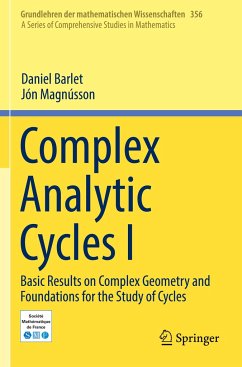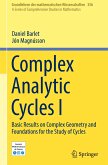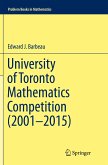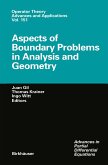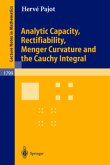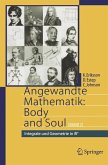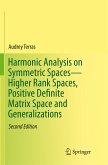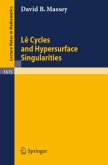The book consists of a presentation from scratch of cycle space methodology in complex geometry. Applications in various contexts are given. A significant portion of the book is devoted to material which is important in the general area of complex analysis. In this regard, a geometric approach is used to obtain fundamental results such as the local parameterization theorem, Lelong' s Theorem and Remmert's direct image theorem. Methods involving cycle spaces have been used in complex geometry for some forty years. The purpose of the book is to systematically explain these methods in a way which is accessible to graduate students in mathematics as well as to research mathematicians. After the background material which is presented in the initial chapters, families of cycles are treated in the last most important part of the book. Their topological aspects are developed in a systematic way and some basic, important applications of analytic families of cycles are given. The construction of the cycle space as a complex space, along with numerous important applications, is given in the second volume. The present book is a translation of the French version that was published in 2014 by the French Mathematical Society.
Bitte wählen Sie Ihr Anliegen aus.
Rechnungen
Retourenschein anfordern
Bestellstatus
Storno

